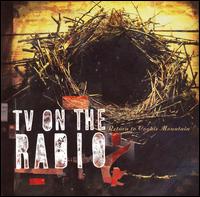 Release Date: September 17, 1996
Release Date: September 17, 1996★★★★★ Tracks:
Forty-Six & 2
AEnima
Having only heard AEnima a handful of times over the past decade I was looking forward to its entry in to the blog. A few times through and the instrumentation is just as good as I remembered it. Adam Jones, who most would agree isn’t a virtuoso, has a way of blending dropped tunings, hammer-ons, pull-offs, and pedal effects to gives Tool’s music its distinction. Danny Carey, on the other hand, is one of the greatest rock drummers of all time, to hear him use his wide array of toms and cymbals, implementing double bass while occasionally guiding the group through odd time signatures is phenomenal. Justin Chancellor fleshes out the low levels with great bass lines that often sit at the forefront of Tool’s songs. With “H.” and “Stinkfist” I immediately hear what drew me in; there are some truly memorable hooks here. “Forty-Six & 2” has one of the best drum solos in contemporary rock music (whatever happened to drum solos anyways?), and “AEnema,” the most popular track included, has a legendary breakdown filled with images of tidal waves and meteors.
But overall revisiting Tool has led to disappointment. The problem resides in James Maynard’s vocals. I no longer relate to this shit at thirty years old. When I hear Bill Hicks’ speech and Maynard’s lyrics on “Third Eye,” I’m embarrassed that I spent so much time trying to decipher the philosophical (i.e. trippy) meaning behind its story. I’m not sure what all the snake imagery is supposed to suggest in “Forty-Six & 2” and “H,” but it just sounds corny. “Eulogy,” the song that got me to buy this record in the first place makes me cringe now; what used to sound like fist-pumping opposition to Christianity when I was seventeen years old as Maynard sings, “Come down / Get off your fucking cross / We need the fucking space / To nail the next fool martyr,” now sounds cold and offensive. And that’s just the problem: Tool is a band focused on social commentary, but their overall execution is poor. “Eulogy” could have been a great piece of religious criticism, instead it’s a seething attack on Jesus. “Stinkfist” appears to be a critique on over-stimulation, but its metaphorical relationship to fisting is overkill. Then there’s “Prison Sex,” a song that I thought was so cool as a kid because of its foul language is now utterly disturbing knowing the lyrics revolve around sexual child abuse.
I guess as I’ve grown up, I’ve grown out of some of the more pissed-off music I listened to. Unlike Beck's Odelay or Sublime's 40 oz., Tool doesn't remind me of the good times I was having with my buddies in senior year of high school, getting drunk and high and laughing my ass off, Tool reminds me of the trouble I was having with my family and friends, and the anxious uncertainty of where life was taking me after graduation. My only Tool fix going forward will probably come from their third single, "AEnema," the one song included that combines its social commentary with a little wit.



